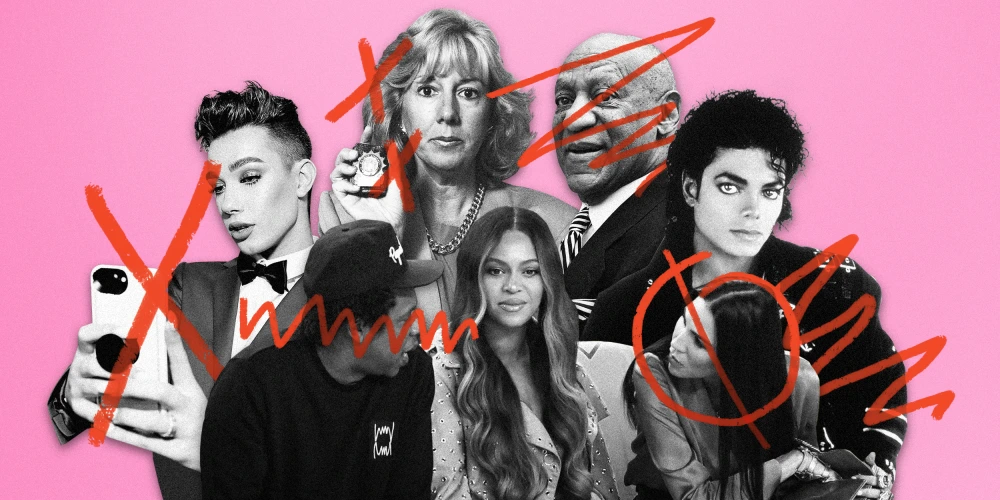We’re in an era where every company, from Pepsi to Patagonia, is relentlessly engaged in the existential wrestling match that is brand purpose, a concept that sounds suspiciously like what used to be called “mission” or, in even earlier epochs, “business as usual.” Except it’s not. Not even close. Brand purpose is a now-glorified moral imperative—corporate with a conscience, if you will—and it’s part of the post-2010 corporate zeitgeist that suggests companies should not only sell things but also stand for things, with a capital “S.”
However, cancel culture—the collective “No, thanks” of social media mobs—lurks in the shadows, ready to pounce the minute a brand’s purpose veers even slightly out of sync with its behavior, message, or worst of all, the public’s mood. It’s like watching a figure skater attempting a quadruple axel in a rink made of cracking moral ice: impressive, almost necessary, but equally likely to end in disaster.
The Tyranny of Purpose
Let’s start with a general premise: brands, much like humans, want to be liked. They want to be respected, admired, invited to cool parties, and increasingly, seen as virtuous and good—again, much like humans. Enter brand purpose. A brand with purpose, like Dove’s “real beauty” or Ben & Jerry’s constant outpouring of social justice proclamations, isn’t just selling soap or ice cream; it’s selling validation, ethics, morality, a kind of moral consumption. You’re not buying a cone; you’re buying a belief. And if a consumer can buy the “right” thing with their money, well, why wouldn’t they?
But this purpose fetishism, for lack of a better phrase, gets trickier when you factor in cancel culture. It’s hard to maintain a consistent narrative of purpose when one errant tweet from your 2020 CEO could rise from the grave like a zombie tweet of doom and take down your entire narrative in 280-character chunks. If brand purpose is supposed to be the why of the brand, then cancel culture is the court that decides whether that why holds up in the fluctuating court of social approval. It’s Kafkaesque, only with more hashtags and fewer rooms full of filing cabinets.
Social Media and the Court of Public Opinion
Cancel culture is, fundamentally, a byproduct of the digital age’s demand for constant accountability, an accountability that is equal parts grassroots activism and mob rule. When you have millions of potential jurors across Instagram, TikTok, and Twitter—excuse me, X—brands are left scrambling to play a perpetual game of ethical Twister. What was “brave” last year might now be “tone-deaf,” and what’s “progressive” today could very well be “performative” tomorrow.
It’s not simply that brands need to be good, they need to appear good in real time, without a misstep or delay in signaling their virtue. And herein lies the rub: people change, norms shift, memes evolve, and outrage cycles can feel more like tidal waves than ripples. So, what happens when a brand, for all its mission statements, fails to align with whatever the cultural equivalent of True North happens to be on a given day?
That’s right: they get canceled.
Not permanently, usually. We live in a society that loves to cancel and un-cancel like a toddler toggling a light switch. What we’re talking about is the momentary death knell of a brand’s public virtue, a quick and brutal internet judgment that deems a company not woke enough, or too woke, or in some instances, “not woke the right way.” Remember that Pepsi ad? Exactly.
The Risk of Purity: Flawed Brands
When brands cling to purpose, especially in a time of volatile discourse, the stakes of messing up are amplified tenfold. For a company like Nike, whose entire brand DNA is essentially woven into Colin Kaepernick’s decision to kneel, there’s little room for ambiguity or missteps. To be unclear in your messaging in 2024 is to court an all-too-familiar wave of digital ire: tweets, think-pieces, maybe a few “Buy American” Reddit threads, and then the dreaded YouTube thinkfluencer videos analyzing “Where It All Went Wrong.”
But here’s the kicker: authenticity is hard. Brands are not people. They’re profit-driven engines wrapped in a thin veneer of humanity. The very nature of corporations is inherently flawed, because, at the end of the day, they’re selling something, even if what they’re selling is the idea that they care about people more than their bottom line. But in the world of cancel culture, we expect brands to operate as flawless paragons, untouched by corporate greed, internal politics, or just plain error.
Nike? You better not have any human rights abuses lurking in your supply chain. Starbucks? You’d better be doing more than selling reusable cups. Because we demand purity, but we’re asking it from entities that, by definition, are not pure.
Virtue on Speed Dial
Here’s where it gets truly labyrinthine: when the public demands speed along with virtue. When a racial injustice happens, or a politician says something inflammatory, or a climate crisis worsens, brands are now expected to have an immediate opinion. It’s almost Pavlovian: event occurs, social media uproar begins, brand response required within 24 hours. Anything less, and you are judged silent. And silence, in the world of cancel culture, is as damning as complicity.
Which is why, in this era, we see companies scrambling to post black squares on Instagram, release statements condemning the latest tragedy, or announce that their new shoes are made entirely of recycled plastic from the Great Pacific Garbage Patch. Sometimes these actions are genuine, and sometimes they’re frantic attempts to avoid cancellation, which leads to the inevitable question: When does purpose become performative?
And when do we, as a society, start to accept that a brand might actually just be a brand, and not some benevolent entity we can outsource our moral consciousness to?
Conclusion: The Brand-Tastrophe
The relationship between brand purpose and cancel culture is paradoxical, fraught, and borderline masochistic. It’s a high-wire act in which brands are expected to perform, to be relevant, and to hold strong moral positions, but to do so without error, in a world that moves at the speed of the internet and judges even faster.
In short, it’s an impossible dance. The companies that survive aren’t the ones that are pure; they’re the ones agile enough to weather the storm of temporary cancellations, knowing full well that perfection is unattainable, and redemption, in the world of brand culture, is just one viral apology video away.





